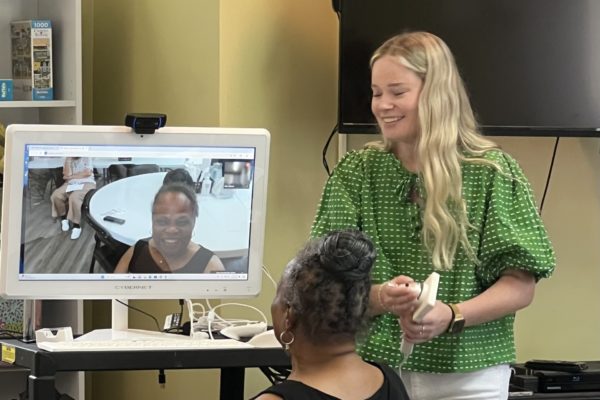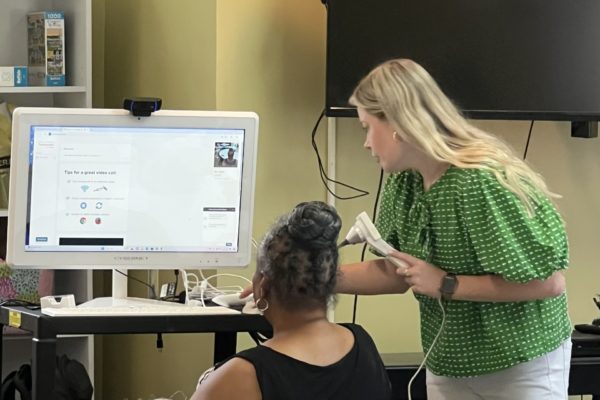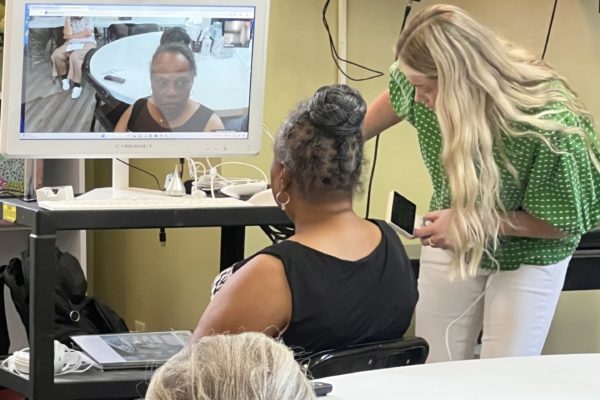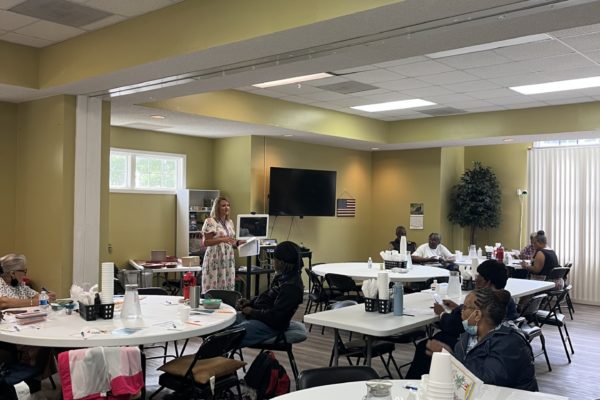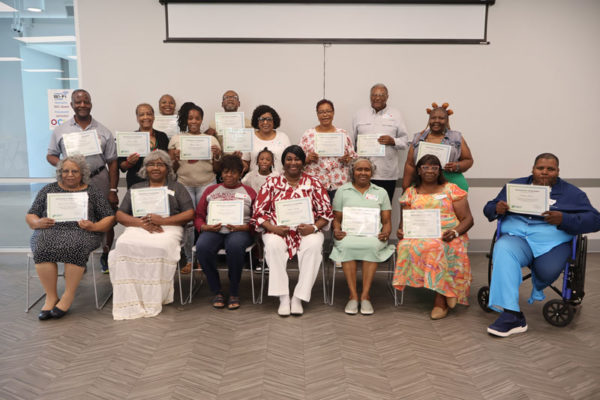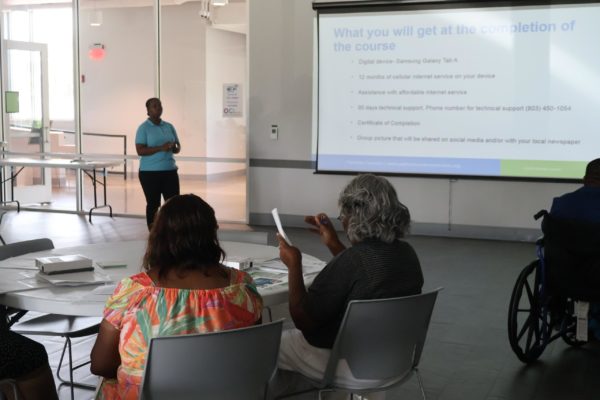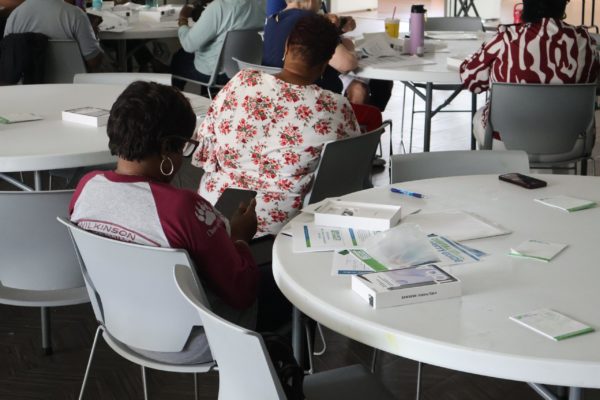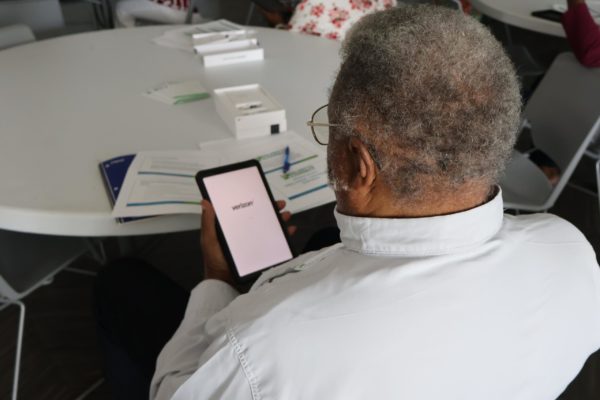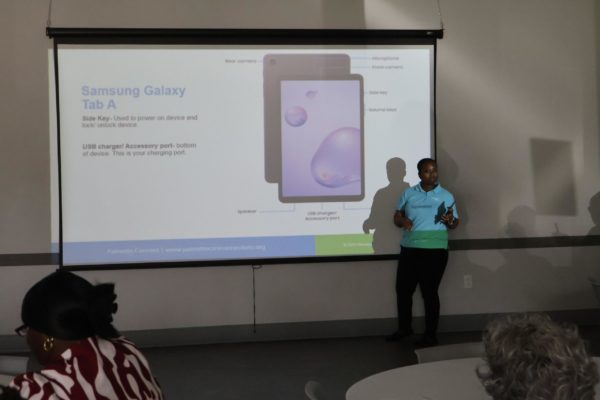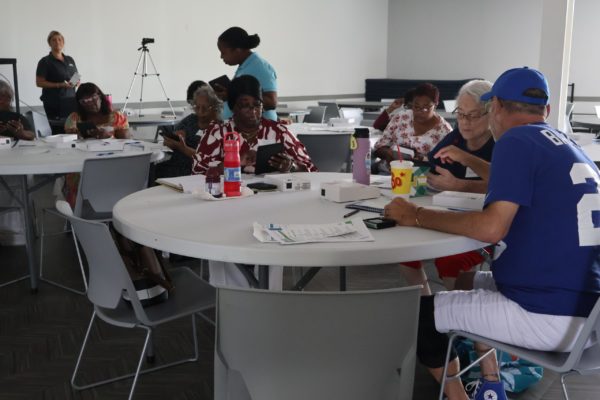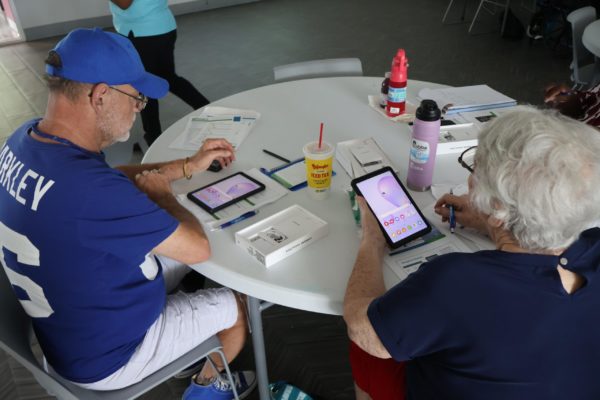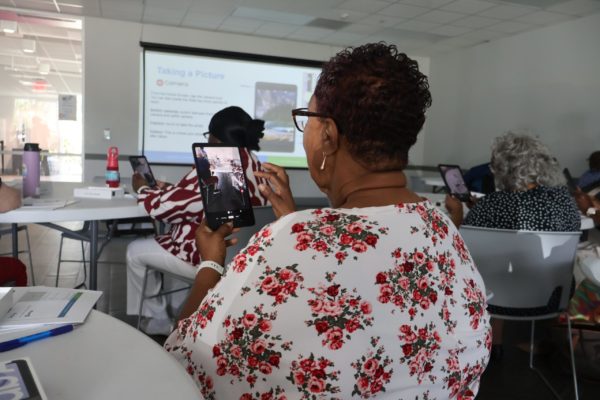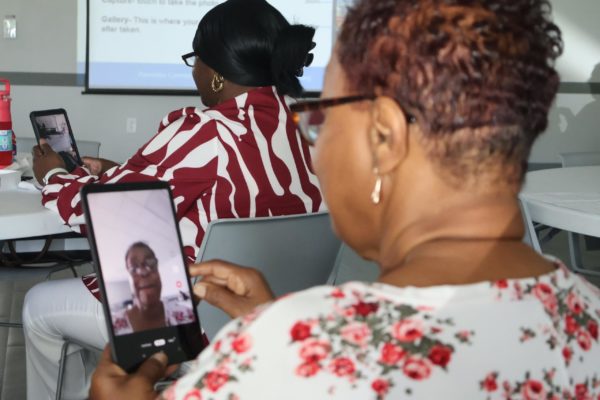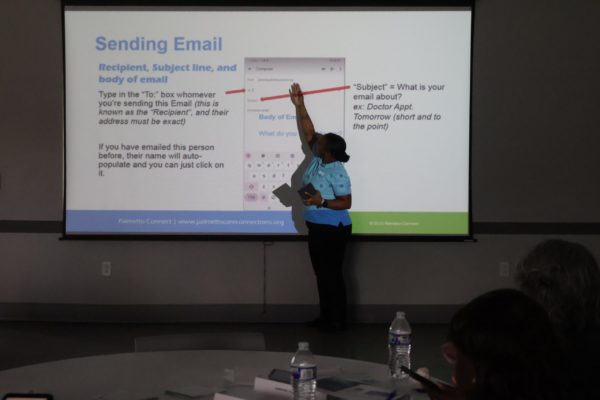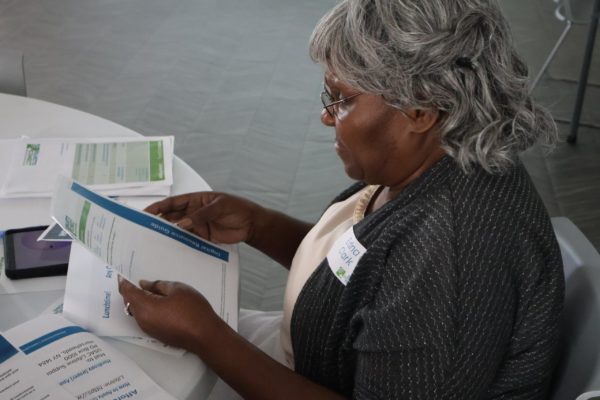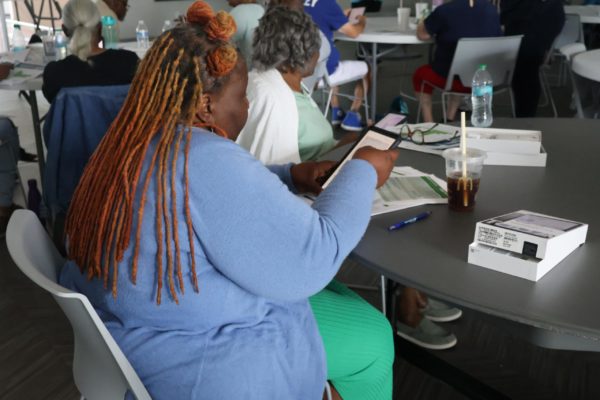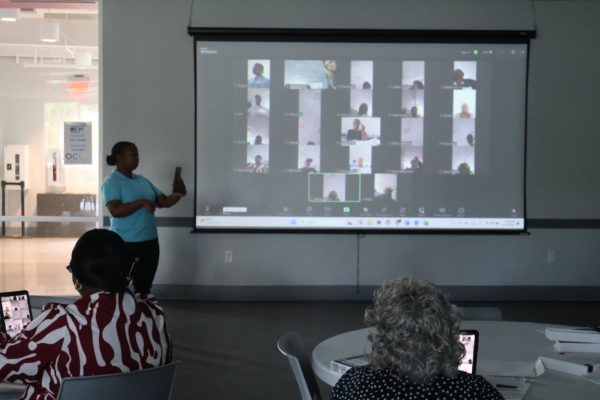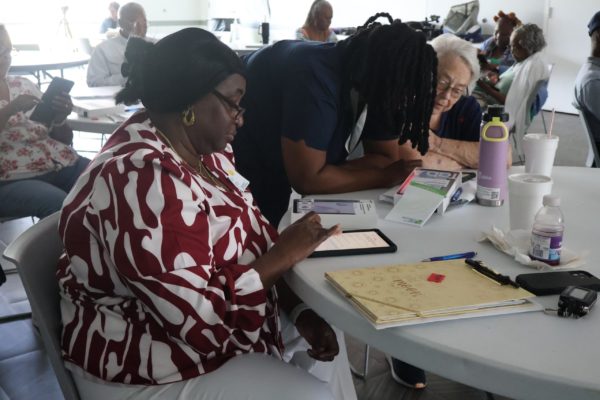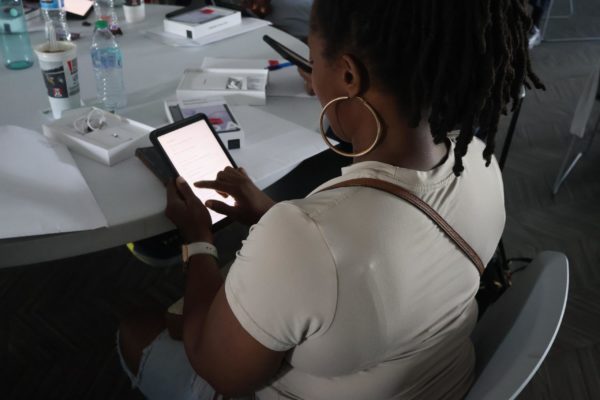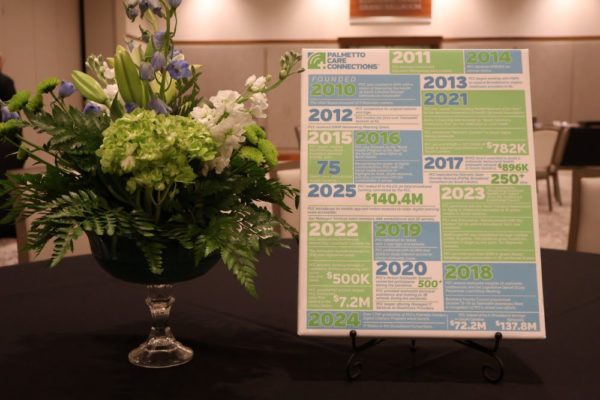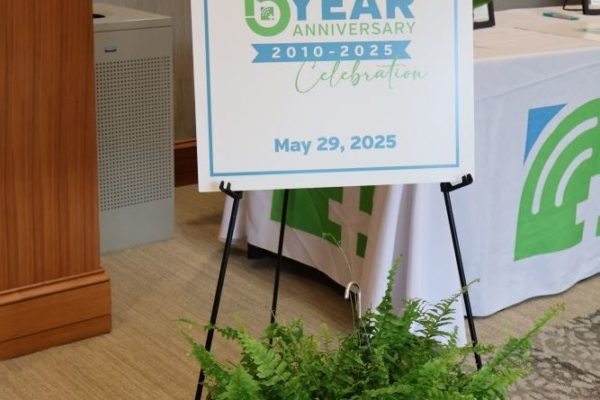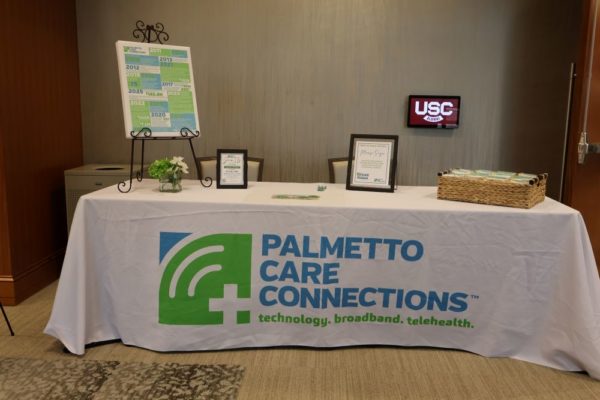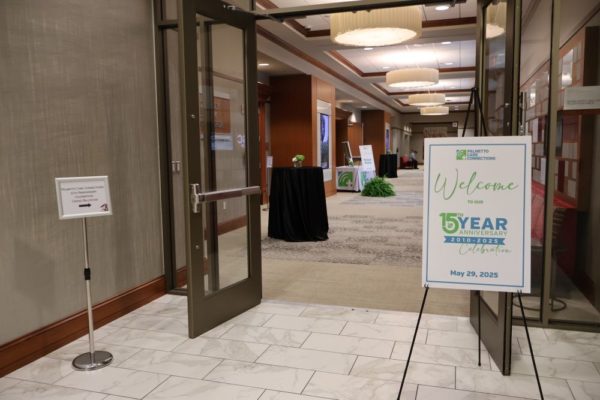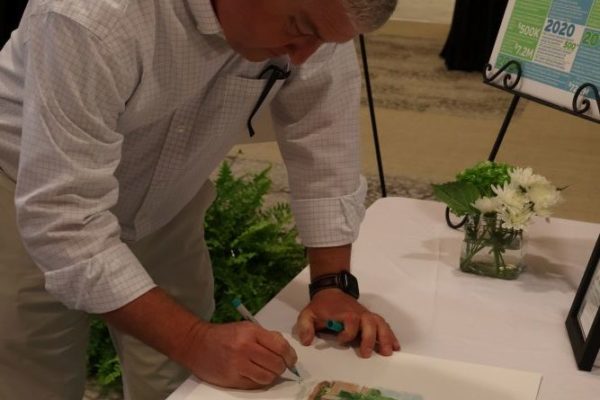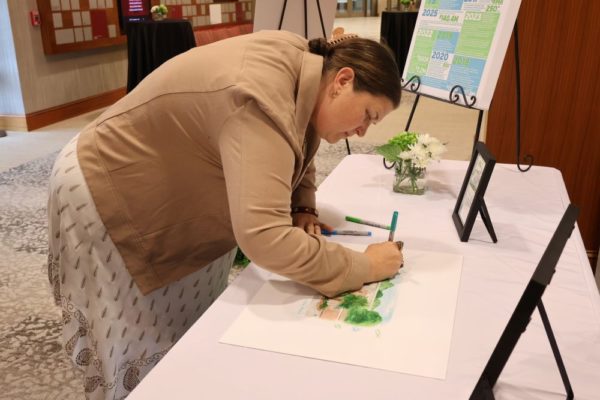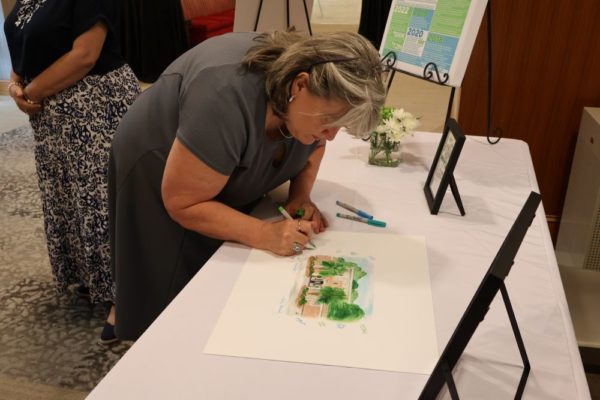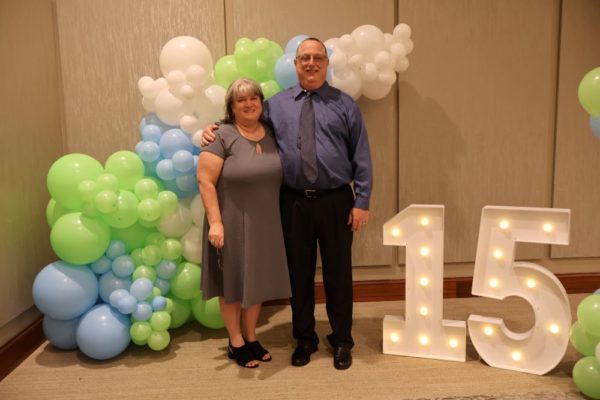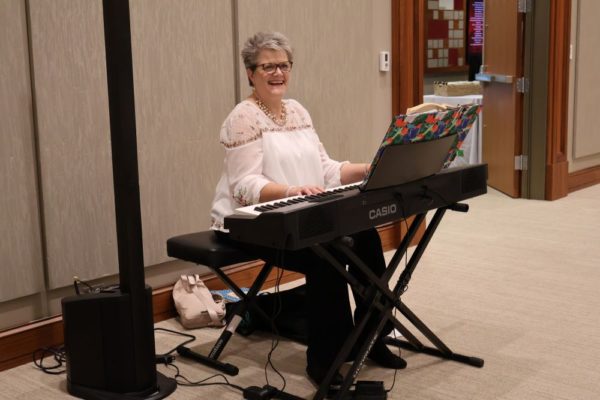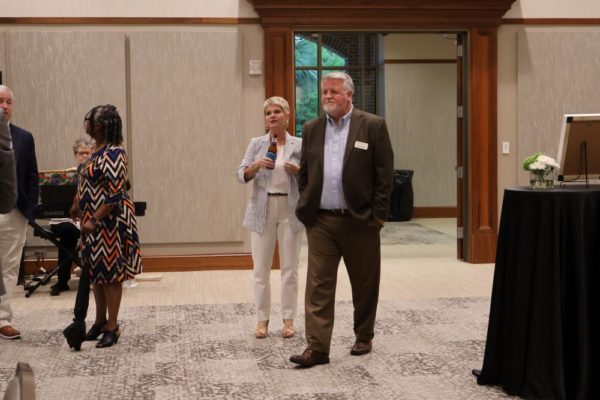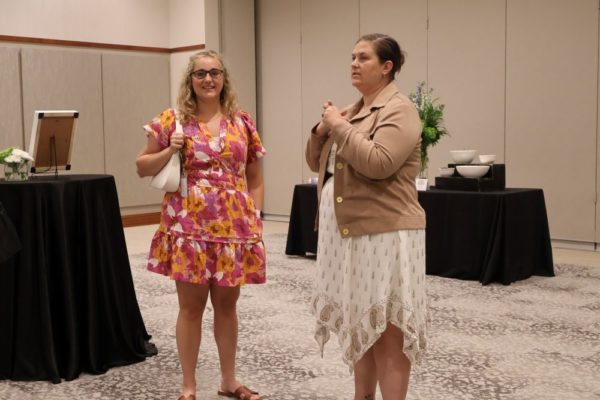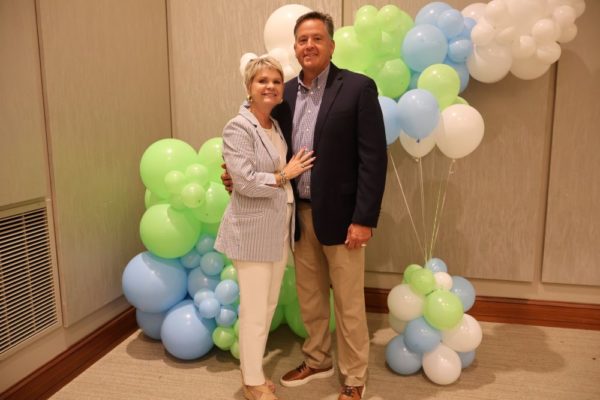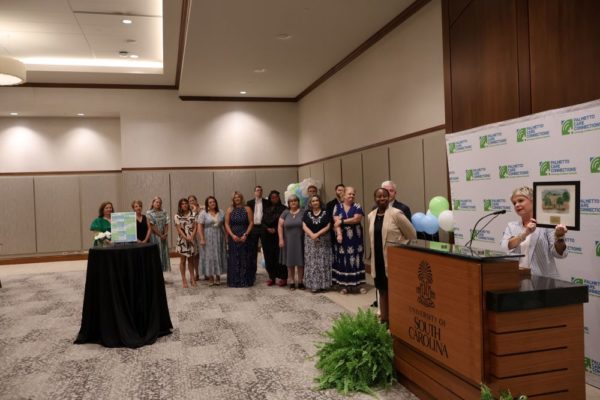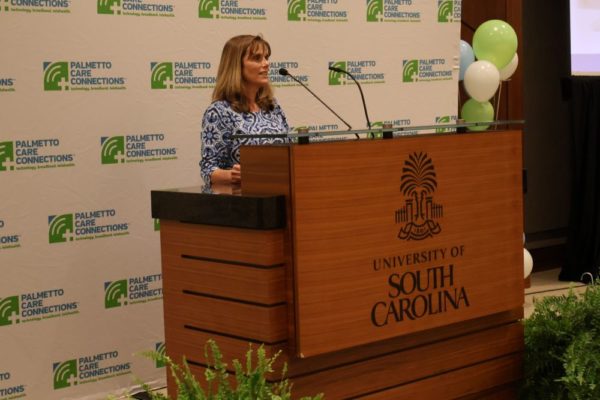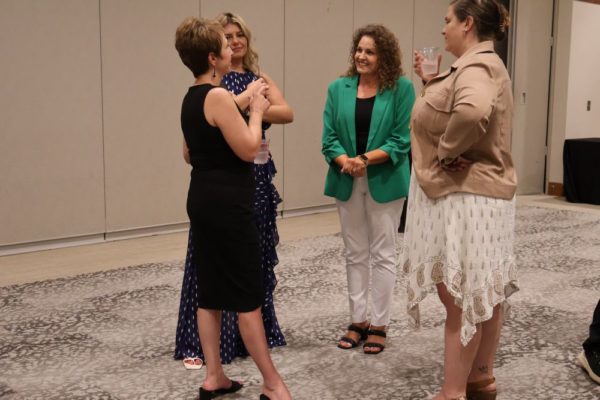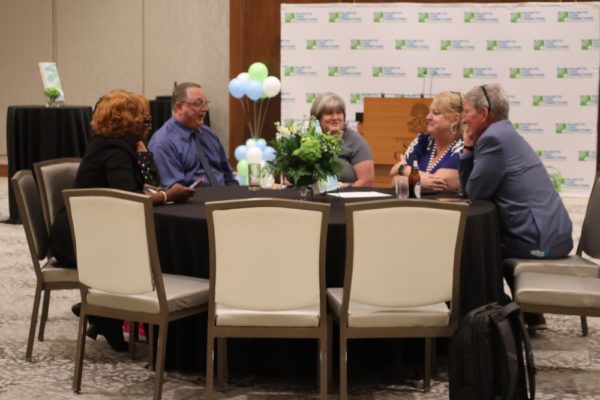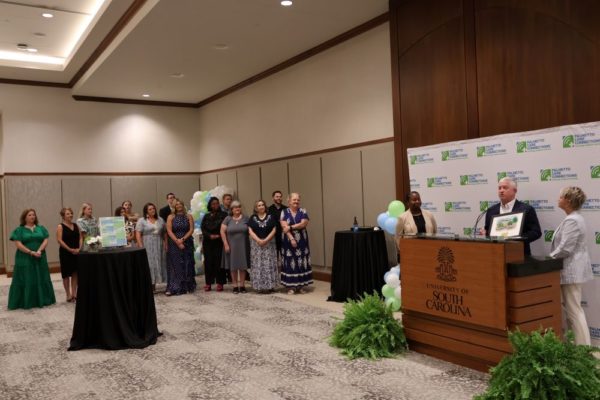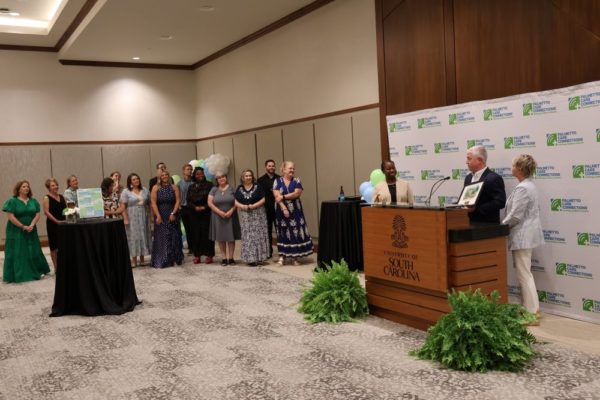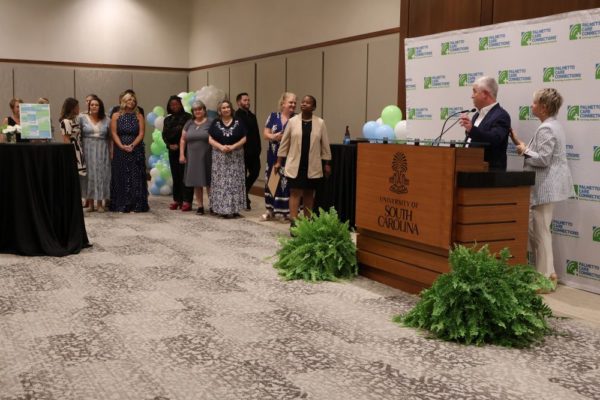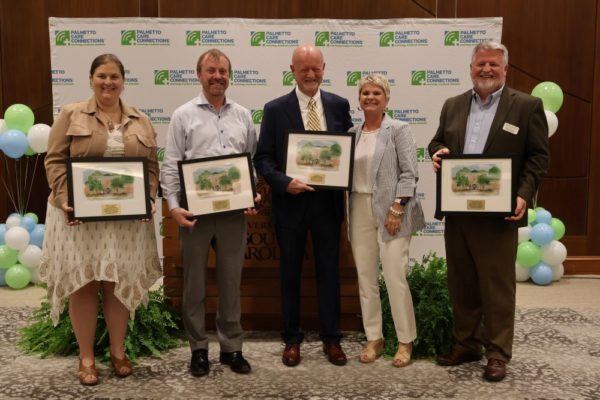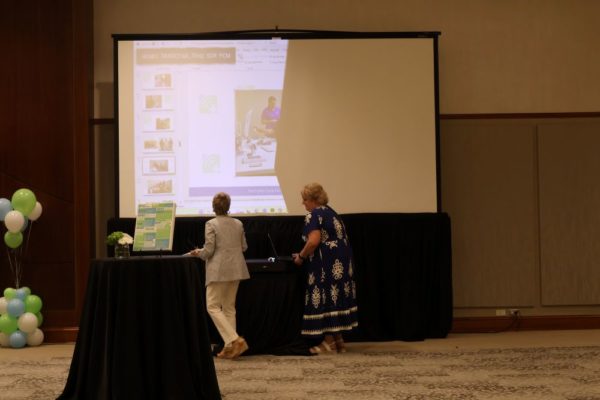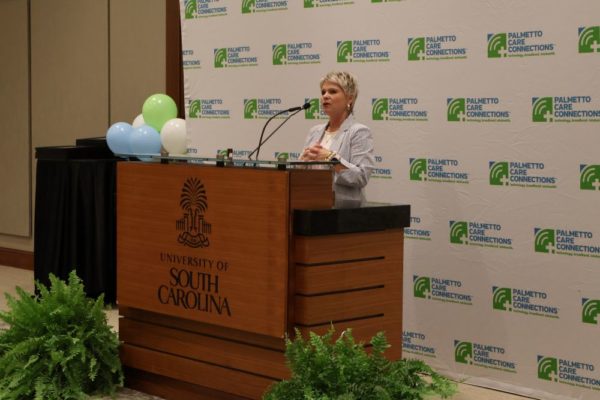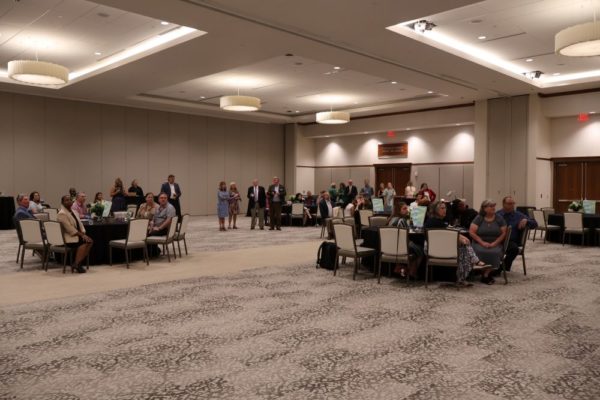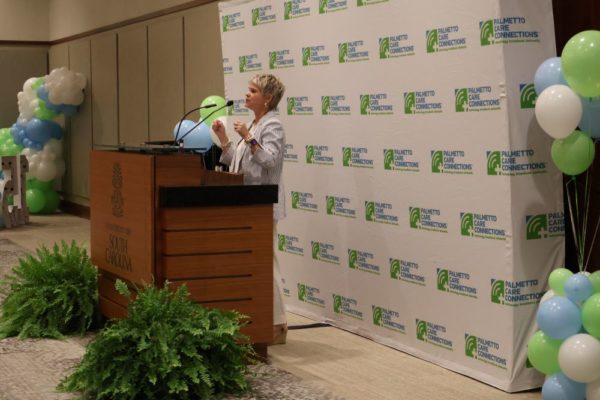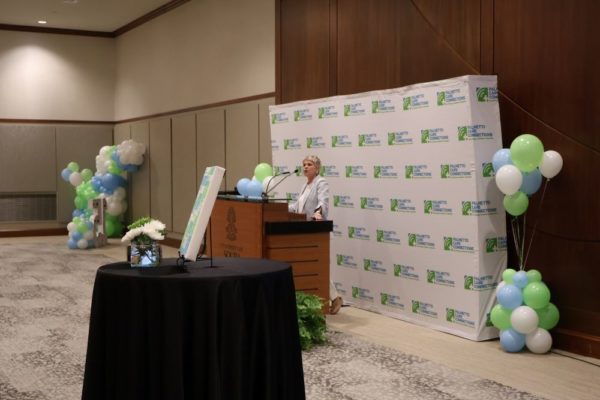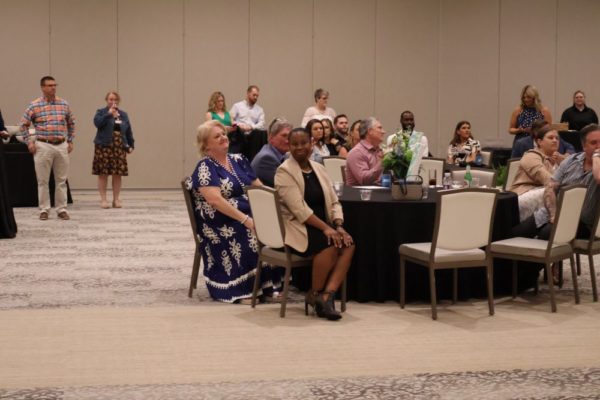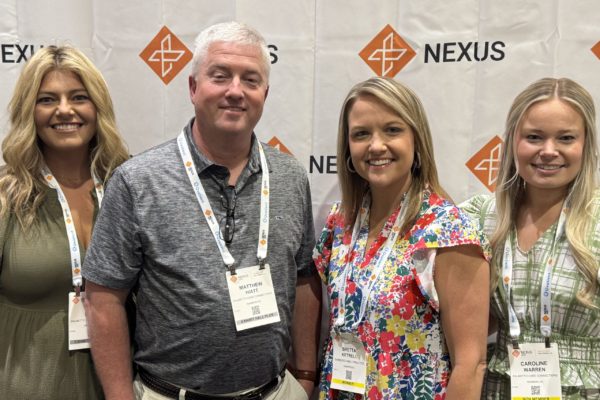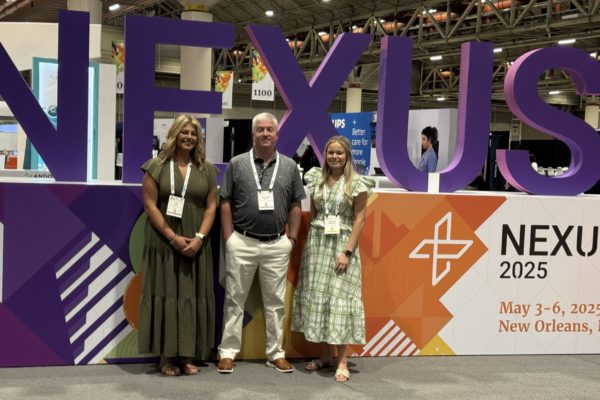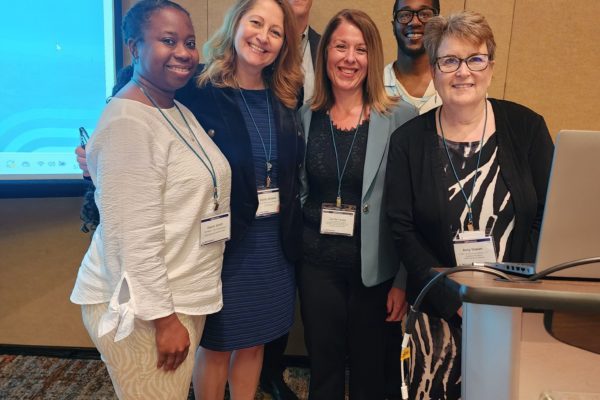By: Chaunte’ Causey, Communications Manager, PCC
By: Chaunte’ Causey, Communications Manager, PCC
By: Chaunte’ Causey, Communications Manager, PCC
Community Health Improvement Week (CHIW), observed June 9–13, is a national opportunity to recognize the people, partnerships, and programs that are making communities healthier. At Palmetto Care Connections (PCC), this week holds special meaning as we reflect on the progress we’ve made—alongside our partners—to close healthcare gaps across rural South Carolina through innovation, collaboration, and heart.
Our mission has always been rooted in one simple but powerful belief: where you live shouldn’t determine if—or how—you get care. This year’s CHIW theme, “We Are Healthcare”, is a reminder that improving community health isn’t just about hospital systems or medical charts. It’s about neighbors checking in, local libraries hosting telehealth visits, and older adults learning to use tablets to speak with their doctors from home.
What PCC Is Doing to Improve Community Health
During CHIW and every week of the year, our team is focused on building digital bridges to better health:
Telehealth Access Points: We’ve partnered with libraries, schools, and community centers to install telehealth equipment in places people already go—making healthcare more convenient, especially in rural areas.
Digital Literacy Training: Through statewide training programs, we teach seniors, caregivers, and underserved populations how to safely use technology for telehealth and other essential services.
Broadband Advocacy: We work alongside government agencies, internet service providers, and nonprofit partners to expand broadband infrastructure—because no one should have to choose between gas money and a doctor’s visit.
Support for Providers: By offering technology solutions and technical assistance to rural clinics and hospitals, we help providers stay connected and patients stay informed.
Get Involved
Community Health Improvement Week is also a call to action. Whether you’re a caregiver, healthcare worker, or just someone who wants to help, here are a few ways to get involved:
Help a neighbor or family member sign up for school-based telehealth.
Volunteer to support one of our digital literacy events.
Share our resources with someone who might not know about them.
Advocate for broadband and telehealth access in your local community.
Together, we can continue creating a future where care is more accessible, more connected, and more personal—no matter where you live.
Columbia, S.C. — On Thursday, May 29, Palmetto Care Connections (PCC) celebrated a major milestone—15 years of bridging the gap between rural communities and health care through telehealth, technology, broadband, and education. The celebration was held at the Pastides Alumni Center on the campus of the University of South Carolina in Columbia, bringing together nearly 100 guests for an evening of gratitude, reflection, and recognition.
The event welcomed some of PCC’s original founding board members, current board members, community partners, and longtime supporters who have championed PCC’s mission since its beginning in 2010. Together, they honored the organization’s journey and celebrated the partnerships that have made statewide progress in telehealth and digital literacy possible.
In recognition of their service, PCC board members were presented with commemorative watercolor paintings of the organization’s headquarters in Bamberg—each a meaningful symbol of PCC’s roots and continued growth. Lively conversation, heartfelt moments, and plenty of laughter filled the room as colleagues and friends reconnected and reflected on the impact of PCC’s work across South Carolina.
The event was a great reminder to everyone why PCC’s mission matters. From expanding broadband access to launching digital literacy classes and supporting rural providers with telehealth solutions, PCC’s accomplishments over the past 15 years are a testament to collaboration, innovation, and an unwavering commitment to improving health care access in rural and underserved communities.
By: Chaunte’ Causey, Communications Manager, PCC
Palmetto Care Connections (PCC) recently attended Nexus 2025, the American Telemedicine Association’s Annual Conference and Expo, held in New Orleans. The event brought together approximately 1,500 healthcare professionals, clinicians, and telehealth leaders from across the country to explore the future of virtual care.
PCC was represented by four team members:
- Matt Hiatt, Chief Technology Officer
- Liz Saitz, IT Director for Community Engagement
- Caroline Warren, Telehealth Coordinator
- Bretta Kittrell, Family Nurse Practitioner at Bamberg Family Practice
Key sessions included:
- “Cracking the Code” – focused on billing, coding, and expanding access to virtual care.
- “The Business of Humanizing Virtual Care” – discussed how to improve patient experience while keeping care high-quality and convenient.
The conference gave PCC valuable insight into new tools and strategies that can help improve healthcare delivery in rural South Carolina. It also gave the team a chance to connect with other organizations working to solve similar challenges in telehealth and digital access.
Events like Nexus help PCC stay informed and inspired as we continue using technology to bring better care to the communities that need it most.
By: Chaunte’ Causey, Communications Manager, PCC
- Applying Systems Thinking to Expanding Computer Ownership
- Bridging Health & Technology
- AI for All: Transforming Digital Skills Training & Navigation
- AI Skills Are Digital Skills
- Outputs vs. Impacts: Measuring Long-Term Success in Expanding Digital Access
By: Chaunte’ Causey, Communications Manager, PCC
On May 28, 2025, Congressman James E. Clyburn brought together a few of South Carolina’s top health care leaders and advocates for a Medicaid Roundtable at the South Carolina Hospital Association in Columbia. The discussion focused on the potential impact of proposed federal health care funding changes, including nearly $1 trillion in reductions passed in a recent reconciliation bill.
Participants examined how these changes could impact access to care for Medicaid recipients, hospitals, and healthcare providers—particularly in rural and underserved areas of the state.
Among the panelists was Kathy Schwarting, CEO of Palmetto Care Connections (PCC), who addressed how funding reductions could threaten the sustainability of telehealth services. PCC supports rural providers across South Carolina in using telemedicine to connect patients with critical care.
Congressman Clyburn highlighted the scope of Medicaid’s reach in South Carolina, where more than one million residents depend on the program—including over 105,000 children and 20,000 seniors in his district. He also underscored the importance of telemedicine in expanding access for underserved communities.
“PCC is deeply concerned,” Schwarting said. “If funding disappears, it’s not just telehealth that goes away—access to care, especially for people in rural areas, becomes nearly impossible.”
In South Carolina, Medicaid supports 4 out of every 9 children, 5 out of every 8 nursing home residents, 3 out of every 10 working-age adults with disabilities, and 1 out of every 6 adults ages 19 to 64. Behind those numbers are real people—families, seniors, and workers—whose health and well-being depend on stable, reliable coverage.
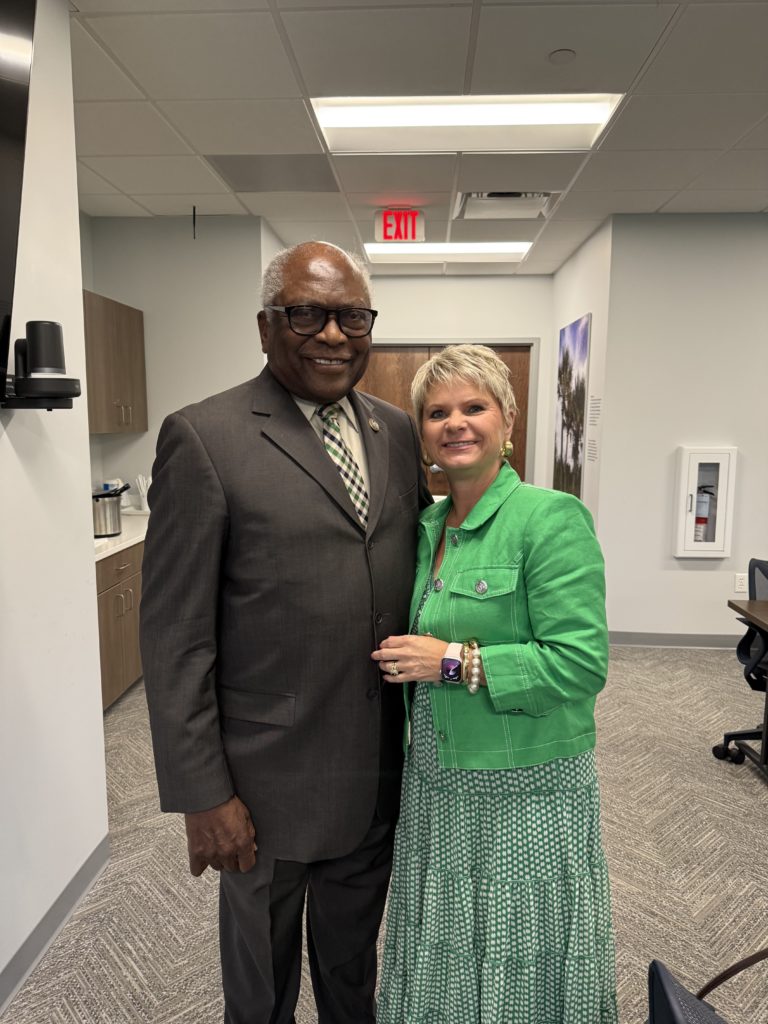
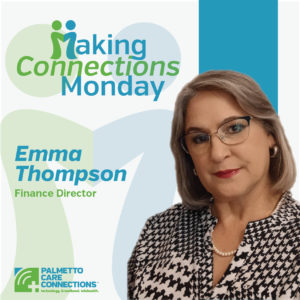 By: Chaunte’ Causey, Communications Manager, PCC
By: Chaunte’ Causey, Communications Manager, PCC
If you’ve had the pleasure of meeting Emma, you know she’s not just crunching numbers—she’s helping drive impact across South Carolina. As Finance Director at PCC, Emma oversees all financial operations to ensure the organization remains in strong financial standing while complying with laws and regulations. She’s also helping pave the way for long-term growth through smart strategy and a heart for service.
Emma joined PCC with deep roots in nonprofit finance. After time away from the sector, she felt a pull to return to work that fuels her passion. “I researched several area non-profits, considered their mission, and reached out to PCC. After talking with Kathy for just a few minutes, I knew this was where I wanted to be.”
Originally from East Tennessee and a longtime South Carolina resident, Emma understands the challenges of rural life—and the power of broadband and telehealth to bridge those gaps. “I wanted to be a part of the mission to help rural and underserved communities by connecting them to quality services. Telehealth platforms have the potential to transform global healthcare delivery, and I want to be part of that.”
While she’s only been with PCC a short time, Emma says it didn’t take long to feel at home. “The team’s enthusiasm and support are incredible. When everyone is working toward the same goal, you can achieve a greater impact—and that’s what I missed most about nonprofit work.”
Outside of work, Emma has a few unexpected passions! She’s a proud FFDP (Five Finger Death Punch) groupie, a wildlife watcher with her own backyard bird sanctuary, and a devoted volunteer for Rottweiler and Basset Hound rescues.
Her favorite quote changes by the day, but today’s mantra says it all: “I will achieve great things through small steps.”
By: Chaunte’ Causey, Communications Manager, PCC
June is recognized as Post-Traumatic Stress Disorder (PTSD) Awareness Month, a time to highlight the lasting effects of trauma and emphasize the importance of accessible mental health care. PTSD can affect anyone who has experienced or witnessed a traumatic event—combat veterans, survivors of sexual assault or domestic violence, first responders, and even those impacted by serious accidents or natural disasters. It’s not just a personal issue—it’s a public health concern.
At Palmetto Care Connections (PCC), we are committed to increasing access to care in rural communities, especially for behavioral and mental health. Through telehealth, people living in remote areas of South Carolina can now receive timely support for PTSD without the delays of distance or travel.
Telehealth Resources for PTSD in South Carolina
Here are several telehealth programs in South Carolina that support individuals living with PTSD:
1. MUSC Health’s Telehealth Resilience & Recovery Program (TRRP)
This trauma-informed program supports patients who are recovering emotionally from serious injuries. TRRP provides education, mental health screening, assessment, and treatment through secure telehealth technology. Whether you’re in a hospital or at home, support is available via phone, tablet, or computer.
2. MUSC Telehealth Outreach Program (TOP)
TOP brings evidence-based, trauma-focused mental health services directly to children and adolescents who’ve experienced trauma. This telehealth service ensures that even students in the most rural school districts can access the support they need without leaving their communities.
3. South Carolina Department of Mental Health (SCDMH) Telepsychiatry Program
SCDMH’s telepsychiatry network provides thousands of psychiatric consultations each month, many of which occur in rural hospitals and community clinics. It’s a proven way to connect patients to licensed professionals without delay, especially in areas where providers are scarce.
If you think you may be experiencing symptoms of PTSD, a self-screening tool from the National Center for PTSD is a good first step. It’s free, anonymous, and helps determine whether you should seek a formal evaluation.
You’re not alone. PTSD can be isolating, but treatment is effective and help is closer than you think—especially with telehealth. This June, let’s raise awareness and expand access to the support so many South Carolinians deserve.

